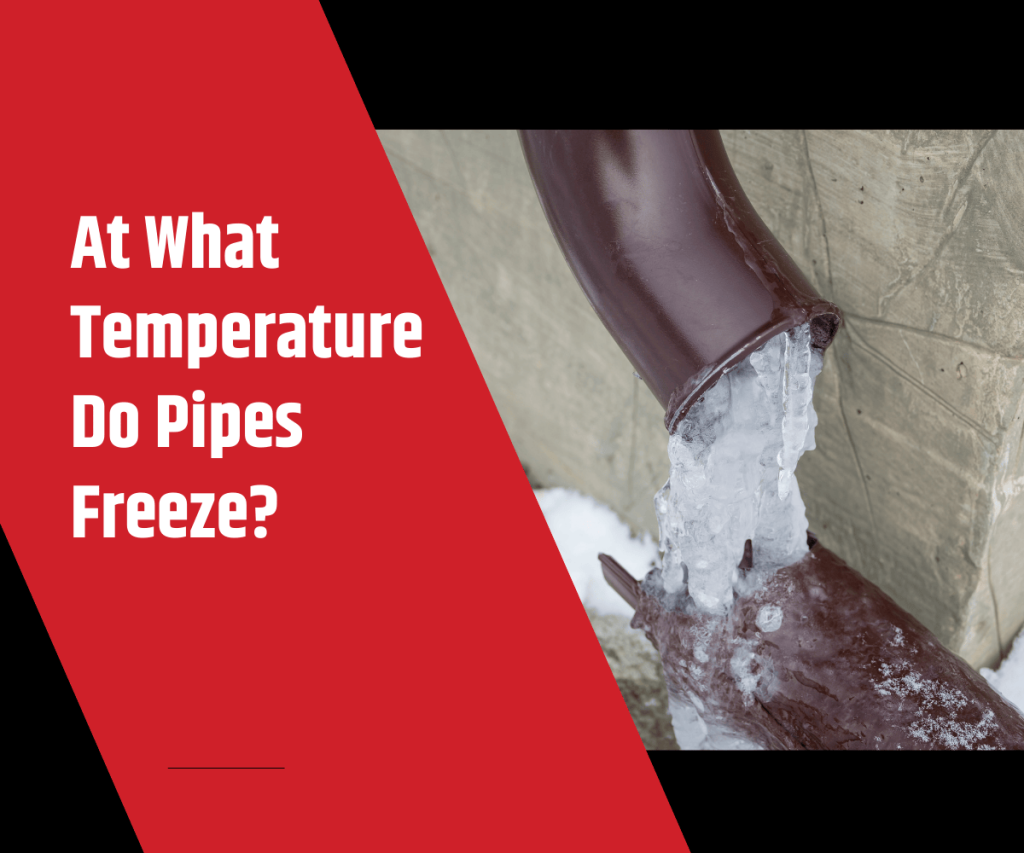
As a homeowner, one of the most common winter concerns is frozen pipes. In colder climates like our hometown of Puyallup, Washington, freezing temperatures can spell trouble for your plumbing system. At Bowers Plumbing & Remodel, we’ve seen firsthand the damage that frozen pipes can cause, and we’re here to help you prevent it. As we approach the winter months, it’s important to prepare your home properly to avoid plumbing disasters. So, what temperature do pipes freeze, and how can you protect your home?
Water begins to freeze at 32°F (0°C), but pipes generally don’t freeze immediately once the temperature dips below that. The pipes in your home are often insulated by walls or placed in areas that may retain warmth for longer. However, when the outdoor temperature reaches around 20°F (-6°C), pipes in uninsulated or poorly insulated areas are at a higher risk of freezing.
Several factors can increase the likelihood of pipes freezing, including:
Location of Pipes
Pipes that are located in exterior walls, attics, basements, and crawl spaces are more exposed to cold temperatures and are more likely to freeze than those inside the home.
Insulation
Proper insulation can greatly reduce the risk of pipes freezing. Pipes without adequate insulation will lose heat more quickly, making them more susceptible to freezing.
Wind Chill
Cold air can enter your home through cracks or gaps, especially if wind chill drives temperatures even lower. This can cause localized freezing even if the rest of the house remains relatively warm.
Frozen pipes can cause severe damage to your plumbing system and home. When water freezes inside the pipe, it expands, putting pressure on the pipe walls. This pressure can cause the pipe to crack or burst, leading to costly repairs and water damage.
A burst pipe can cause flooding in your home, potentially in areas where you may not notice right away, such as in a garage or inside the walls. Water damage to your home is not only expensive to repair, but can lead to other problems like mold growth and structural damage.
At Bowers Plumbing & Remodel, we recommend taking the following steps to protect your pipes during freezing weather:
Insulate Pipes
Make sure that pipes in unheated or exposed areas are insulated. Foam pipe insulation can help keep pipes warm during cold snaps. In a pinch, you can cut old pool noodles or wrap your pipes in blankets or towels to help insulate them (though we recommend proper insulation for long-term protection).
Let Faucets Drip
Allowing a slow trickle of water to flow through the pipes can prevent freezing by relieving pressure and keeping the water moving.
Seal Leaks and Cracks
Check your home for gaps around windows, doors, and foundations where cold air can seep in. Sealing these areas can help keep your home warm and protect your pipes.
Keep the Heat On
Even if you’re away from home, keep the thermostat set at a reasonable temperature. Maintaining heat inside your house can prevent pipes from freezing. Consider setting your thermostat to 50ºF when you’re away to avoid unexpected freezes.
Open Cabinet Doors
On especially cold nights, open cabinet doors in kitchens and bathrooms to allow warm air to circulate around the pipes. Closed doors can prevent heat from entering, so open any closet doors or other doors you may keep shut.
If you suspect your pipes have frozen, it’s important to act quickly. Turn off the water at the main shutoff valve and call a professional plumber to assess the situation. At Bowers Plumbing & Remodel, we provide emergency services to help with frozen or burst pipes in the Puyallup area.
Knowing the temperature at which pipes freeze and taking preventive measures can save you from a plumbing disaster. If you’re concerned about your pipes this winter, contact Bowers Plumbing & Remodel for expert advice and services to winterize your plumbing system. Don’t let freezing temperatures catch you off guard—prepare your home and stay safe all winter long.